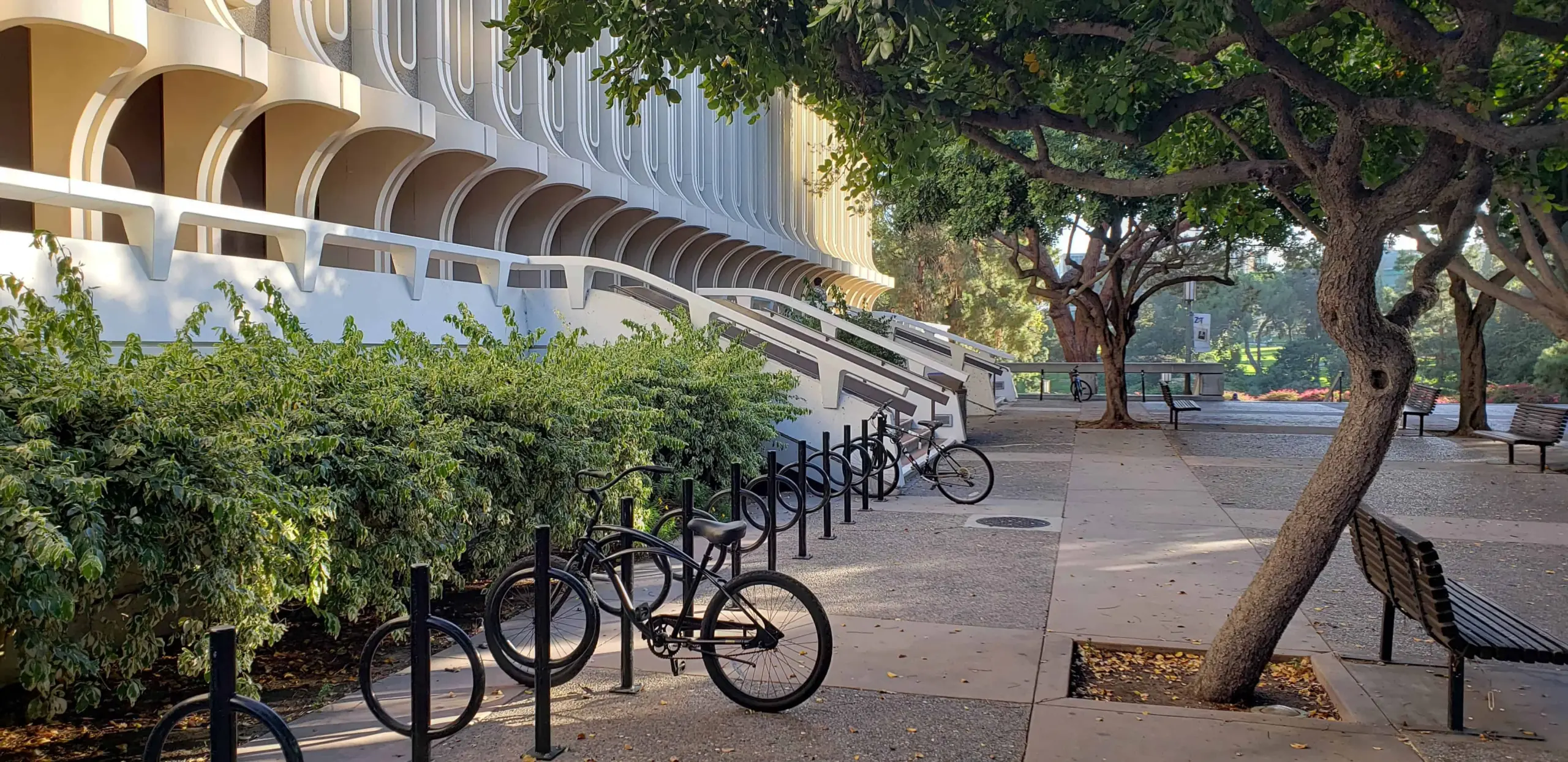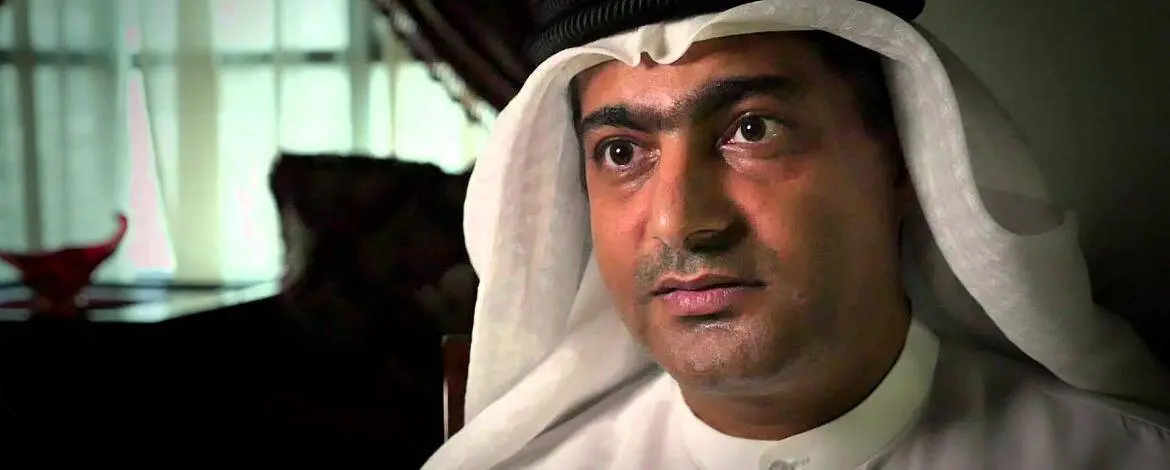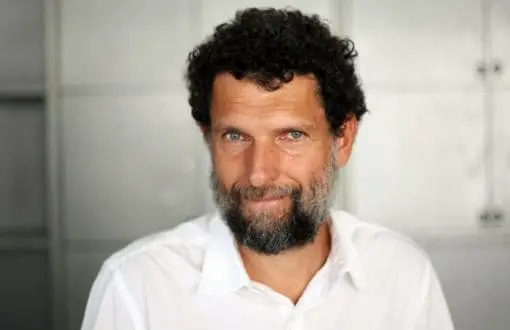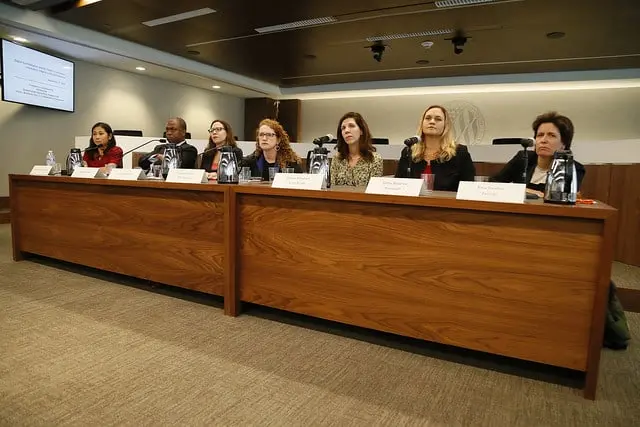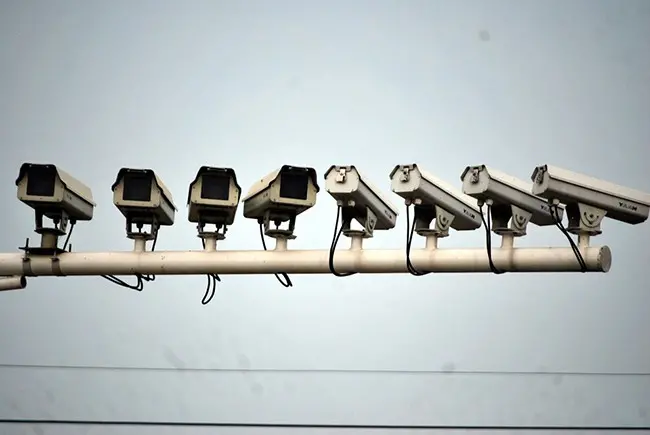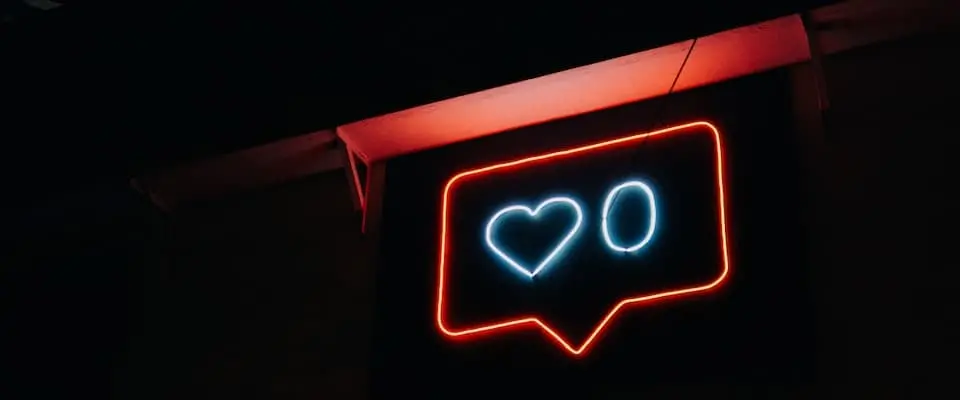The PEN Ten is PEN America’s weekly interview series. This week, Lily Philpott speaks with Annalee Newitz, author of The Future of Another Timeline (Tor Books, 2019).

1. What was the first book or piece of writing that had a profound impact on you?
A lot of writing affected me when I was growing up, from poetry and fiction to nonfiction and games, and as an adult I find that different early influences return to haunt me at different times. Recently I’ve been thinking a lot about the summer between middle school and high school when I read Maya Angelou’s classic I Know Why the Caged Bird Sings. It was one of the most powerful books I’d ever read, and I devoured the entire series. Her books showed me worlds I knew nothing about—I remember being particularly dazzled by her account of Black expat life in Europe. Angelou also described things I knew intimately, but that nobody in my conservative suburb talked about: the monstrousness of white supremacy, and how fathers could rape their daughters and act like everything was normal. Most of all, her books were about salvation through poetry and art, and that was the message I internalized. I’m certain it’s part of what has helped me survive. Indeed, survival has been an ongoing preoccupation of mine, in both fiction and nonfiction.
“Nonfiction is very pragmatic—it can help you solve real-world problems. But fiction can help you see the problems in the first place.”
2. How does your writing navigate truth? What is the relationship between truth and fiction?
I always joke that I started writing fiction so that I could tell truths that weren’t permitted in my journalism and other nonfiction. But I mean it seriously, too. In fiction, I can tell truths that are more personal and deal with the emotional motivations and repercussions of bigger political issues. Fiction also creates a safe sandbox where we can play with possibilities that scare or enrage us in the real world. That said, there’s nothing like the thrill of truth-telling in nonfiction, where a reader comes away knowing something new about the real world. Nonfiction is very pragmatic—it can help you solve real-world problems. But fiction can help you see the problems in the first place.
3. What does your creative process look like? How do you maintain momentum and remain inspired?
I write every day, and sometimes I write a LOT if I’m on deadline. I’m inspired by reading fiction, science journal articles, nonfiction, and of course by conversations with my friends in person and online. I’m also deeply into scripted television and movies, and I’m always watching at least five or six shows at any given time. In the past couple of years, I’ve gotten back into role-playing games, and I have a regular D&D group that has been questing together for almost two years. We call ourselves dragon chasers, because every time we’re about to kill an evil dragon, it runs away. So we’ve successfully scared away a lot of bad guys, but have never actually slain one. Which is maybe the way it should be in life, too.
4. How can writers affect resistance movements?
Resistance is the main reason why I write. That said, I don’t think there’s necessarily a direct line between writing about revolution and fomenting one, nor do I think that all revolutions look the same. Resistance can take the form of a kid disobeying an authoritarian teacher or an army refusing to follow a dictator. We tend to fetishize the idea of “political uprising,” as if party politics are the only correct place to start a movement. But we need radical political changes everywhere: in professional organizations of romance writers, or groups of academic medievalists. You can resist oppression by reading an escapist book, by marching in the street, by voting, or by making a meal for a friend. Sometimes having fun is a form of resistance. If my writing can ease someone’s pain or help them stand up to a fascist, I feel like I’ve done my job.
“If you find yourself getting neurotic about how you are not really a writer, that’s a clear sign that you are one.”
5. How does your identity shape your writing? Is there such a thing as “the writer’s identity”?
I remember reading an interview with Octavia Butler, where she said that she was only interested in writing about Black people because almost nobody else was doing it—and besides, Black people were the most fascinating to her. That’s kind of how I feel about women, nonbinary people, and queers. It’s not that I don’t care about other kinds of people; it’s just that I want to fill people’s brains with strong, weird, adventurous, morally ambiguous people who are not men, and not straight. Obviously, I’m not the only one doing this! A lot of other great writers are here with me, creating those characters too.
The results of all our work are a source of never-ending joy for me. The other day, my 12-year-old niece was saying that she’d never seen a Sherlock show or movie, and I replied, “Well, why don’t you start by watching Miss Sherlock? It’s a great show about a Japanese woman detective and her sidekick Wata-san solving crime in Tokyo.” So we watched the first episode together. My niece’s mom grew up in Tokyo, and my niece is bilingual. I love that her FIRST Sherlock will always be a Japanese woman. She can watch the BBC version with Benedict Cumberbatch later. Maybe, to her, he will always feel like a faint copy of the original Japanese character.
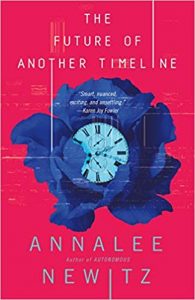 6. What is the most daring thing you’ve ever put into words? Have you ever written something you wish you could take back?
6. What is the most daring thing you’ve ever put into words? Have you ever written something you wish you could take back?
I’ve written about a lot of crazy shit in my fiction, including gay robot sex in the future and time-traveling geologists eating trilobites in the Ordovician period. But the most daring thing I’ve ever said was in my nonfiction book Scatter, Adapt, and Remember, which was simply that scientific evidence suggests humans will survive the next mass extinction. I make a similar argument in my forthcoming book, Four Lost Cities, which is about the archaeology of abandoned cities. There is simply no evidence from geological or human history that humanity will die out. Sure, we are going to face horrific disasters and our population will probably shrink a lot. But we fit the profile of a survivor species, based on evidence from previous mass extinctions. That’s all I said, and I have never gotten as much hate and incredulity for anything else I’ve written. What I realized from that experience was that a LOT of people really want humanity to die out. I think they want us to be damned for what we’ve done to the planet and to each other. I’m definitely pissed about how much we’ve fucked up, but nature doesn’t mete out punishment like some Abrahamic god. We don’t get a perfect, unambiguous apocalyptic ending that absolves us of all responsibility. I’m afraid humanity is going to live through our own garbage, and we’re going to have to deal with cleaning it up. People say this is a ridiculously utopian idea, but it’s actually pretty dark when you think about it.
7. What advice do you have for young writers?
My best advice is to keep writing, and keep reading! Keep publishing, too—every single publication is a big deal, whether it’s on your social media profile or in some fancy magazine. Also, if you find yourself getting neurotic about how you are not really a writer, that’s a clear sign that you are one.
“Indeed, survival has been an ongoing preoccupation of mine, in both fiction and nonfiction.”
8. What is one book or piece of writing you love that readers might not know about?
I’m utterly in love with Mary Anne Mohanraj’s collection of linked stories called The Stars Change. It’s an incredibly beautiful, nuanced portrait of post-colonial relationships on another world that’s been largely settled by refugees from Sri Lanka. Now home to people from many planets, it’s being torn apart by a futuristic version of nationalist/separatist politics, which finally culminate in a series of bombings in a big university city. The stories all take place on the night of the bombings, from the perspectives of people all over the city, who eventually come together to save the survivors. As you read, you realize that the thread connecting all these characters is sexual or romantic love. It’s smart, political, and deeply human—even though it’s about aliens, too. Also there is a key scene where Sri Lankan food brings everybody together, which is delightful.
9. Why do you think people need stories?
I think stories are like psychological infrastructure, and they undergird our knowledge and beliefs about the world. To continue the metaphor, let’s say your infrastructure has lots of public transit and walkable streets—that’s going to give you a very different view than an infrastructure that’s oriented around freeways and gated high-rises. Bad infrastructure can make you sick, like the water system in Flint. Or it can contribute to health, like public parks and bicycle lanes do. The good (or maybe bad) news is that psychological infrastructure is a lot more fungible than urban infrastructure—reading a new kind of story can be life-changing. My point ultimately is that we need stories to orient us in reality, to bring meaning to what would otherwise be a barrage of decontextualized facts and events.
10. As a science journalist and science-fiction writer, how does your creative process differ between when you are working on fiction vs. nonfiction? What about fiction vs. speculative fiction? Do the lines between genres blur when you’re writing or researching an idea?
They definitely intersect for me all the time. Fiction inspires my nonfiction, and vice versa. But the creative process is REALLY different. I always start any project with research, but then fiction diverges sharply into the realm of the speculative, where facts blur together with belief and imagination. This makes the writing process a lot less stressful than nonfiction, where I’m always vigilantly checking my work against known evidence. In my science journalism, I feel a strong responsibility to be as accurate as possible and to explain my sources of information. That makes it more difficult to build a compelling story—I can’t just change facts to suit the mood I’m aiming to create. But that doesn’t mean nonfiction is harder than fiction. In journalism, there’s a lazy shortcut to narrative because the story is already out there, waiting for you to tell it. In fiction, you have to make up every little detail. Because I write speculative fiction, that means building an entire world, from the color of the sky and the state of technology, to the main character’s backstory and lustful dreams. There’s a lot of: “Let’s say there was a hovercraft—oh but no. How about a flying cyborg moose instead? How would that work? Would it have fur? Would it talk?” Luckily, I never have to ask those questions when I’m writing about science. Because there are no flying cyborg moose. At least, that’s the current hypothesis.
Annalee Newitz is an American journalist, editor, and author of fiction and nonfiction. They are the recipient of a Knight Science Journalism Fellowship from MIT, and have written for Popular Science, The New Yorker, and the Washington Post. They founded the science fiction website io9 and served as editor-in-chief from 2008–2015, and then became editor-in-chief at Gizmodo and tech culture editor at Ars Technica. Their book Scatter, Adapt, and Remember: How Humans Will Survive a Mass Extinction was nominated for the LA Times Book Prize in science. Their first novel, Autonomous, won a Lambda award.

